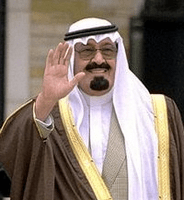Saudi Arabia's recent announcement that it plans to build 16 large reactors by 2030 may have seemed incongruous in the wake of the Fukushima crisis. In fact, it actually buttresses the Middle East's current trajectory as a major future market for nuclear energy and underscores the continuing attractiveness of nuclear power for industrially underdeveloped economies. Moreover, given the sheer size of the plan -- well more than $100 billion will go to the reactors alone -- Riyadh is in a position to set terms and use the project to enhance new partnerships while balancing old ones.
The kingdom's interest in nuclear energy is often traced to its rivalry for regional leadership with Iran and Riyadh's unwillingness to be outstripped by Tehran's nuclear prowess. But Saudi nuclear ambitions crystallized in the run-up to the 2009 Copenhagen Summit, when it realized that global efforts to control climate change could end up punishing countries that put off including noncarbon-based energy sources in their power portfolios. In April 2010, King Abdullah issued a royal decree stating, "The development of atomic energy is essential to meet the kingdom's growing requirements for energy to generate electricity, produce desalinated water and reduce reliance on depleting hydrocarbon resources." Left unsaid is that those depleting hydrocarbon resources would be put to better use generating export revenue to facilitate the modernization of the Saudi economy rather than meeting the kingdom's growing domestic electricity requirements. Saudi Arabia is at present experiencing 6-8 percent annual growth in electricity demand and will need to put in place 60,000 megawatts of new capacity by 2020.
In that context, nuclear energy forms a key component of Riyadh's strategy to transition its economy from primary production to industrial maturity. Nuclear plants generate electricity with lower marginal costs than oil or gas and can do so, uninterrupted, for very long periods of time, making them highly attractive for powering energy-intensive industrial and commercial activities. They are also currently the only viable non-greenhouse gas-emitting alternative to coal in this role. Moreover, nuclear continues to be an attractive sector for investment for countries looking to augment their scientific-industrial base, since it draws upon a vast array of commercial technologies that can boost domestic development simultaneously. Saudi Arabia is no exception in this regard.

